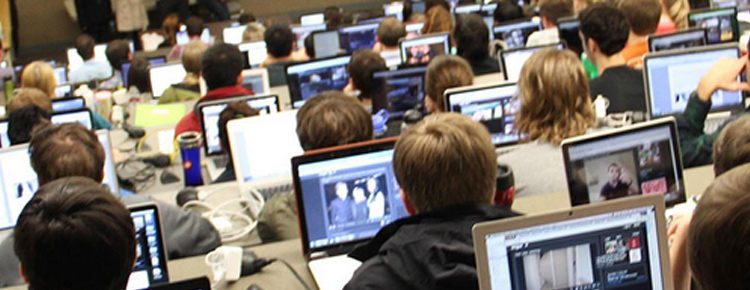The Multi-Tasking Myth
posted September 17, 2014 #
Over the weekend I read through this Clay Shirky article Why I Asked My Students To Put Their Laptops Away and can't stop thinking about it. As a teacher of "theory and practice of social media" at NYU it seems pretty sensible that Shirky would allow his students to have their laptops open while they learn about the Internet. The article could easily have turned into a professor complaining about those damn kids and their computer machines but he takes a very rational approach to the problem, even tossing in just the right amount of legitimate science:
Do I think the general public will stop tackling multiple tasks at once in an effort to do one task with more efficiency? Probably not. However, I think it's worth taking note of in your every day efforts.
People often start multi-tasking because they believe it will help them get more done. Those gains never materialize; instead, efficiency is degraded. However, it provides emotional gratification as a side-effect. (Multi-tasking moves the pleasure of procrastination inside the period of work.) This side-effect is enough to keep people committed to multi-tasking despite worsening the very thing they set out to improve.That pull quote alone keeps swimming in my head as it seems to be easily abstractable to larger issues we all experience. Multi-tasking isn't the right solution to the problem but it's the one with emotional gratification, so we go that route.
Do I think the general public will stop tackling multiple tasks at once in an effort to do one task with more efficiency? Probably not. However, I think it's worth taking note of in your every day efforts.

